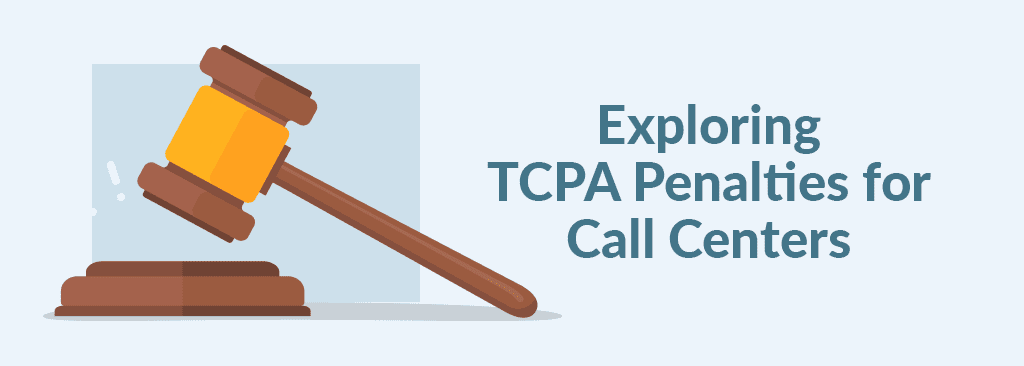The Cost of Noncompliance: Exploring TCPA Penalties for Call Centers
TCPA provides a set of regulations that protect consumers from unwanted telemarketing calls and text messages. Call centers that violate the ever-changing and complicated TCPA regulations can face hefty fines.
The largest fine to date for not maintaining TCPA compliance was given to ViSalus, a health supplement company – who owed a staggering $925 million for improper marketing in 2019.
How to avoid compliance penalties
With a large price tag set on TCPA violations, and fines ranging from $500 to $1,500 per non-compliant text or call, ensuring compliance should be a priority for call centers everywhere. Non-compliance penalties can be broken down into two main categories:
- Calls or text messages to those listed on the National Do Not Call Registry
The National Do Not Call Registry is a list of people who have opted out of receiving telemarketing calls or texts. Call centers are prohibited from calling or texting anyone on this list, regardless of whether the call or text was intentional.
Keeping track of this can be complicated when people change phone numbers. Thankfully, TCN can help you stay in the loop with the Reassigned Number Database to prevent any hiccups.
- Unsolicited calls or text messages using automated dialing or pre-recorded messages
Call centers that use autodialers or pre-recorded messages must obtain prior written consent from the recipient before making the call or sending the text. They must also make it easy for consumers to opt out of receiving future calls or texts.
Although TCPA regulations can be complicated, confusing and stressful for call centers, staying compliant is not impossible.
To avoid these fines, call centers should make sure to register their phone numbers to keep consumers fully informed of their identity, stay up-to-date with the National Do Not Call Registry, obtain written consent for automated calls and make it easy for consumers to opt out, should they wish.
Additionally, call centers need to take care not to allow more than 3% of their automated calls to be abandoned, meaning callers must be connected with a live agent within two seconds of the call being answered 97% of the time.
Contacting consumers between the hours of 8 PM and 9 AM and using a misleading caller ID is also prohibited.
TCPA: A complex law with serious consequences
TCPA violations are not just hypothetical. In recent years, there have been a number of high-profile TCPA lawsuits, including:
- Journeys: In 2022, Journeys, a popular retailer, was sued for sending unsolicited marketing texts to consumers who had opted out. The company agreed to pay $855,000 to settle the lawsuit.
- CapitalOne: In 2015, CapitalOne was sued for making robocalls to consumers without their consent. The company agreed to pay $75 million to settle the lawsuit.
- State Farm: In 2016, State Farm was sued for contacting customers using an automated phone system without consent. The company agreed to pay $7 million to settle the lawsuit.
Simplifying your compliance journey
TCPA penalties are significant and can have a major financial impact on call centers – even a single violation could cost a call center thousands of dollars.
Call centers should take steps to avoid TCPA violations by keeping their contact lists up-to-date with the National Do Not Call Registry, obtaining prior written authorization for automated calls and pre-recorded messages and making opting out of future calls or texts easy for consumers.
There are a number of resources available to help call centers comply with the TCPA, including the Federal Trade Commission’s website. Additionally, TCN offers a Complete Guide to TCPA Compliance, among other helpful compliance solutions, to simplify your compliance journey.
